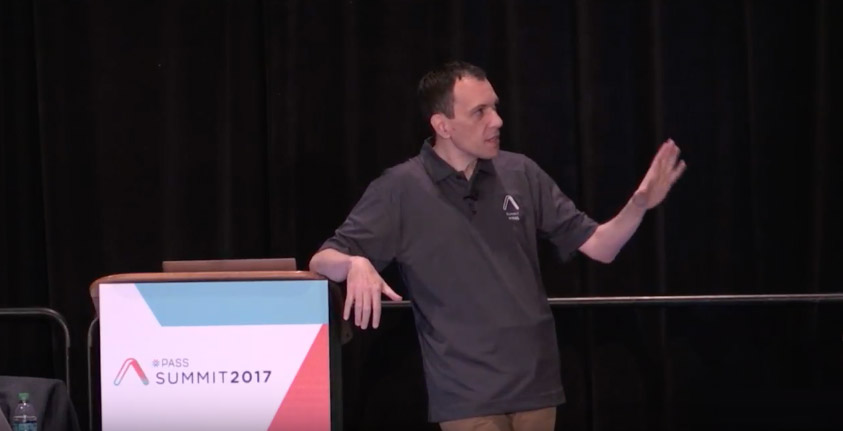
I’ve recently been asked to talk about my experience as a speaker at technical conferences. I wasn’t sure what to say, until I realized that it makes more sense to start with explaining the reasons why one should attend a conference.
In fact, I spent many years on the attendees side. And I still try to attend sessions in conferences where I am speaking. Why is it a good idea to spend precious time attending a conference?
The classic answer is: learning and networking. I typically like introductive sessions for something I don’t know anything about, and intermediate to advanced sessions about topics I’m more comfortable with. Very rational. I can also meet vendors, speakers, and many other attendees, exchanging ideas and experience. Still, very rational.
However, here is something that is not part of the usual “convince your boss” document that many conferences provide to help attendees get approval: when you attend a conference, you disconnect from your day-to-day habits, you are able to breathe a new air, you start seeing your technical scenarios from a different perspective, and you have time to be inspired. In other words, one of the reasons to attend a conference is to not be surrounded by your boss and colleagues for a few days (besides those attending the same conference, of course).
Wait, what if you are a consultant? Well, it’s not very different. In the past, I attended most conferences as a consultant. It was a fruitful way to take a break from my customers and to see that the world out there might have different needs and implement different solutions.
Does it work? I think so. I’ve been involved in the technical evaluation of candidates during a recruitment process on several occasions. I may have some bias, but statistically candidates that were committed to attending conferences and user groups were much better than those who “never had time” for that. Yes, it’s basically a question of time. If you have never attended a user group event, you probably don’t have any interest to begin with, or you are making the unfortunate assumption that it’s a waste of your time.
So, there are good reasons to attend a conference. But why should you be a speaker, too?
To be honest, there are different motivations. At the beginning, it’s just a challenge. Will I be able to do that? That’s enough for the first time, and maybe also for another two or three times. But there is more to it. Presenting a session about a topic requires you to master the argument much more deeply than the 30 slides and 5 demos you have prepared. You are scared to receive a question that finds you unprepared. You want to be able to fix a broken demo on stage – although, well, this is a terrible idea no matter how good you are at troubleshooting. You want to feel “safe” when you are on stage. Thus, presenting a topic sets a goal for your preparation that you wouldn’t have when just solving a problem raised within the frame of a customer’s requirements.
To me, this is still an important motivation for being a speaker. Of course, there is an increased level of visibility, you become recognized as an expert – always much more that you really are – and people may cheer you on in the elevator of a hotel close to the conference making you feel like a Rockstar (which you are not). And yes… You help others, you help the community. I like that, too.
But raising the bar is a much stronger motivation. If you want to raise the bar for yourself, if you are good and passionate about what you do, and you are looking for your next challenge, speaking at a larger conference is your next peak to climb.